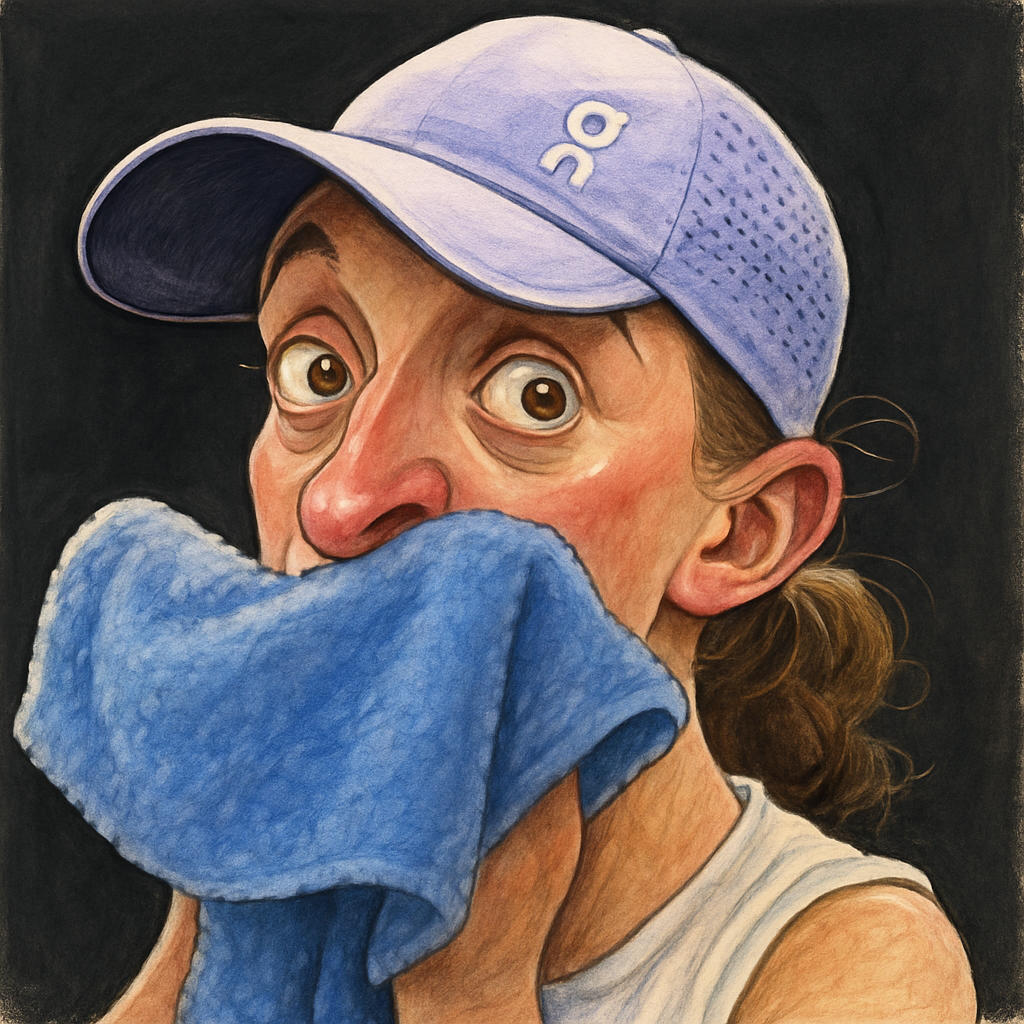BAD HOMBURG — Iga Swiatek’s quest for her first grass-court title fell short at the Bad Homburg Open on Saturday as she was defeated by American Jessica Pegula in straight sets, 6-4, 7-5. Despite the loss, the former world No. 1 remained optimistic about her progress on the surface, stating, "There's hope for me on grass."
Swiatek, who had never advanced beyond the quarterfinals on grass before this tournament, showcased significant improvements in her game, adapting her baseline-heavy style to the faster, lower-bouncing conditions. However, Pegula’s precision and experience on the surface proved too much to overcome. The American, ranked No. 4 in the world, capitalized on Swiatek’s occasional struggles with movement and timing, securing her third career title.
A Promising Run Cut Short
Swiatek entered the final with momentum, having dispatched three opponents in straight sets, including a dominant 6-1, 6-0 win over Anna Blinkova in the semifinals. Her aggressive play and improved serve—long considered a weakness on grass—had many believing she was primed for a breakthrough. However, Pegula’s consistency and ability to exploit Swiatek’s vulnerabilities in key moments turned the tide.
The match’s pivotal moment came in the first set, with Pegula breaking Swiatek at 4-4 before serving out the set. In the second, Swiatek fought back from an early break but faltered at 5-5, allowing Pegula to close out the match. "I knew I had to stay patient and take my chances when they came," Pegula said afterward. "Iga’s a great competitor, so I had to stay sharp."
Swiatek’s Grass-Court Evolution
Despite the loss, Swiatek’s performance in Bad Homburg signaled a shift in her grass-court fortunes. Historically, the four-time Grand Slam champion has struggled on the surface, with her last two Wimbledon campaigns ending in early exits. However, this year, she has made noticeable adjustments:
- Improved serve placement and variety
- More aggressive net approaches
- Better adaptation to low bounces
Swiatek acknowledged these strides in her post-match press conference: "I feel like I’m understanding grass better now. It’s still a process, but I’m getting there. This week gave me a lot of confidence." Her coach, Tomasz Wiktorowski, echoed the sentiment, emphasizing that her tactical adjustments were paying off.
Pegula’s Grass-Court Mastery
For Pegula, the victory marked her first title of the season and reinforced her reputation as one of the WTA’s most consistent performers. Known for her flat groundstrokes and ability to redirect pace, Pegula has now won three of her last four finals. "Grass suits my game really well," she said. "I’ve worked hard to feel comfortable on it, and today it showed."
The win also served as a statement ahead of Wimbledon, where Pegula will look to improve on her career-best fourth-round appearance. With her confidence high and her game finely tuned, she could be a dark horse contender in London.
Looking Ahead to Wimbledon
Both players will now shift their focus to Wimbledon, where Swiatek will aim to translate her Bad Homburg progress into a deep run. Seeded No. 1, she faces a challenging draw but remains optimistic. "I know I can compete on grass now," she said. "It’s about taking it match by match."
Pegula, meanwhile, will look to build on her momentum. With her tactical intelligence and recent form, she could pose a serious threat to the established grass-court elite. "I’m just trying to keep improving," she said. "Every match is a new opportunity."
Final Thoughts
While Swiatek’s wait for a grass-court title continues, her performance in Bad Homburg suggests she is closing the gap. For Pegula, the victory reaffirms her status as a top-tier player on all surfaces. As Wimbledon approaches, both will be names to watch—Swiatek for her potential breakthrough, and Pegula for her consistency and confidence.
The Bad Homburg final may have ended in disappointment for Swiatek, but her words afterward resonated: "There’s hope for me on grass." If her progress this week is any indication, that hope is well-founded.

